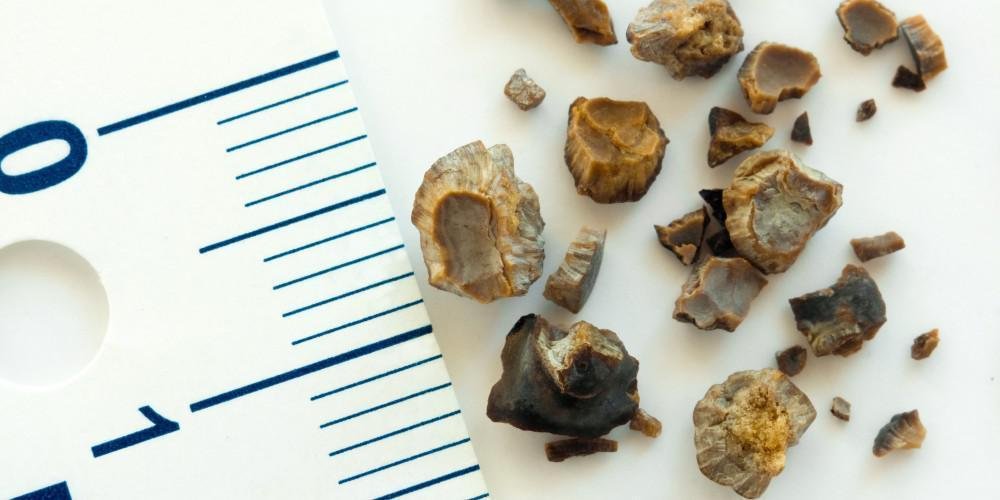Flu-like symptoms such as fever, chills, body aches, and fatigue are often associated with viral infections, particularly the flu. However, did you know that these symptoms can sometimes indicate the presence of kidney stones or complications related to them? While the flu and kidney stones are distinct conditions, their overlapping symptoms can lead to confusion and delayed diagnosis. Let’s explore how these two conditions are connected and why recognizing the difference is crucial.
What Are Kidney Stones?
Kidney stones are hard deposits made of minerals and salts that form in the kidneys. They can vary in size, from tiny grains to larger stones, and often develop when urine becomes concentrated, allowing these minerals to crystallize and stick together.
Common Symptoms of Kidney Stones
- Severe pain in the back, side, or lower abdomen
- Pain during urination
- Frequent or urgent need to urinate
- Blood in the urine (hematuria)
- Nausea and vomiting
Flu-Like Symptoms and Kidney Stones
Kidney stones typically do not cause flu-like symptoms directly. However, when complications arise—such as a urinary tract infection (UTI) or kidney infection (pyelonephritis)—flu-like symptoms may appear.
When Kidney Stones Cause Flu-Like Symptoms
- Infection:
Kidney stones can obstruct the urinary tract, creating an environment where bacteria can thrive. This can lead to infections, which might cause:- Fever and chills
- Fatigue and malaise
- Nausea and vomiting
- Inflammation:
The presence of kidney stones can irritate the urinary tract, causing localized inflammation. While inflammation itself doesn’t cause systemic flu-like symptoms, the body’s immune response to infections or severe irritation can produce these effects. - Sepsis (a Medical Emergency):
In rare cases, an untreated kidney infection can lead to sepsis, a life-threatening condition where the body’s response to infection triggers widespread inflammation. Flu-like symptoms may escalate to severe fatigue, high fever, rapid heart rate, and confusion. Immediate medical attention is essential.
Differentiating Between Flu and Kidney Stones
Since flu and kidney stone complications can present with overlapping symptoms, understanding key differences is vital:
| Symptom | Flu | Kidney Stones |
|---|---|---|
| Fever | Common | Common if infection is present |
| Pain Location | Generalized body aches | Localized to the back, side, or abdomen |
| Nausea and Vomiting | Possible | Often associated with severe pain or infection |
| Pain During Urination | Rare | Common |
| Blood in Urine | Absent | Possible |
If you experience a combination of flu-like symptoms with severe, localized pain or changes in urination, it’s essential to consult a healthcare provider.
When to Seek Medical Help
Seek immediate medical attention if you have:
- High fever and chills accompanied by back or abdominal pain
- Difficulty urinating or blood in the urine
- Persistent nausea and vomiting
- Signs of sepsis, such as confusion, rapid heartbeat, or extreme fatigue
Preventing Kidney Stones and Related Infections
While kidney stones cannot always be prevented, adopting healthy lifestyle habits can reduce your risk:
- Stay Hydrated: Drink plenty of water to dilute urine and prevent mineral buildup.
- Maintain a Balanced Diet: Limit sodium and oxalate-rich foods (e.g., spinach, nuts) while increasing calcium intake through natural sources.
- Monitor Your Health: Regular check-ups can help identify risk factors early.
- Promptly Treat UTIs: Untreated UTIs can increase the risk of complications from kidney stones.
Conclusion
Although flu-like symptoms are usually associated with viral infections, they can sometimes signal complications related to kidney stones. Being aware of these connections ensures timely diagnosis and treatment, preventing serious outcomes. If you’re unsure about your symptoms, consult a healthcare provider to rule out underlying conditions and receive appropriate care.
By staying informed and proactive, you can take charge of your health and reduce the risk of complications associated with kidney stones and related infections.

